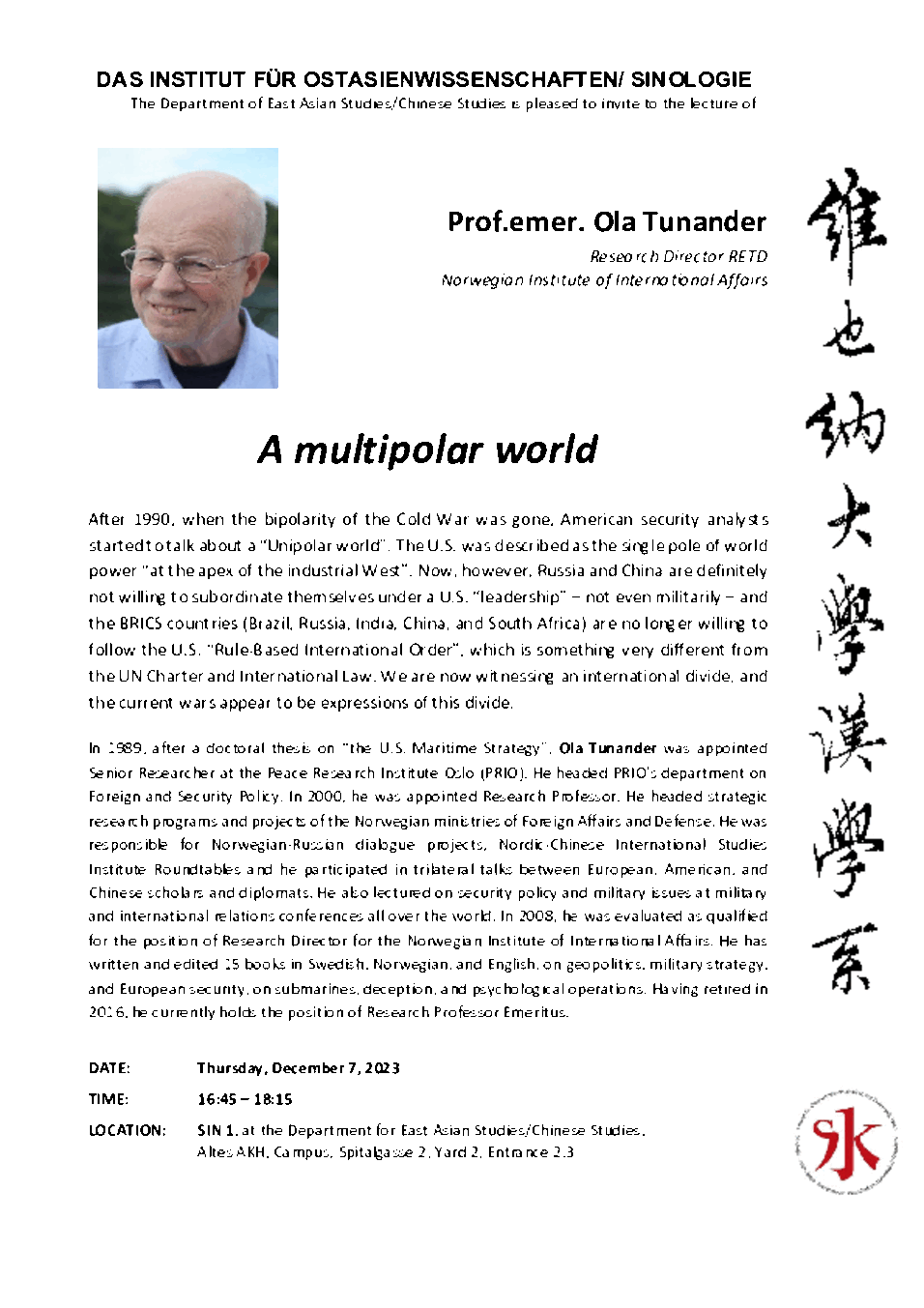After 1990, when the bipolarity of the Cold War was gone, American security analysts started to talk about a “Unipolar world”. The U.S. was described as the single pole of world power “at the apex of the industrial West”. Now, however, Russia and China are definitely not willing to subordinate themselves under a U.S. “leadership” – not even militarily – and the BRICS countries (Brazil, Russia, India, China, and South Africa) are no longer willing to follow the U.S. “Rule-Based International Order”, which is something very different from the UN Charter and International Law. We are now witnessing an international divide, and the current wars appear to be expressions of this divide.
In 1989, after a doctoral thesis on “the U.S. Maritime Strategy”, Ola Tunander was appointed Senior Researcher at the Peace Research Institute Oslo (PRIO). He headed PRIO's department on Foreign and Security Policy. In 2000, he was appointed Research Professor. He headed strategic research programs and projects of the Norwegian ministries of Foreign Affairs and Defense. He was responsible for Norwegian-Russian dialogue projects, Nordic-Chinese International Studies Institute Roundtables and he participated in trilateral talks between European, American, and Chinese scholars and diplomats. He also lectured on security policy and military issues at military and international relations conferences all over the world. In 2008, he was evaluated as qualified for the position of Research Director for the Norwegian Institute of International Affairs. He has written and edited 15 books in Swedish, Norwegian, and English, on geopolitics, military strategy, and European security, on submarines, deception, and psychological operations. Having retired in 2016, he currently holds the position of Research Professor Emeritus.
DATE: Thursday, December 7, 2023
TIME: 16:45 - 18:15
LOCATION: SIN 1, at the Department for East Asian Studies/Chinese Studies, Altes AKH, Campus, Spitalgasse 2, Yard 2, Entrance 2.3
For more information, please refer to the attached PDF

